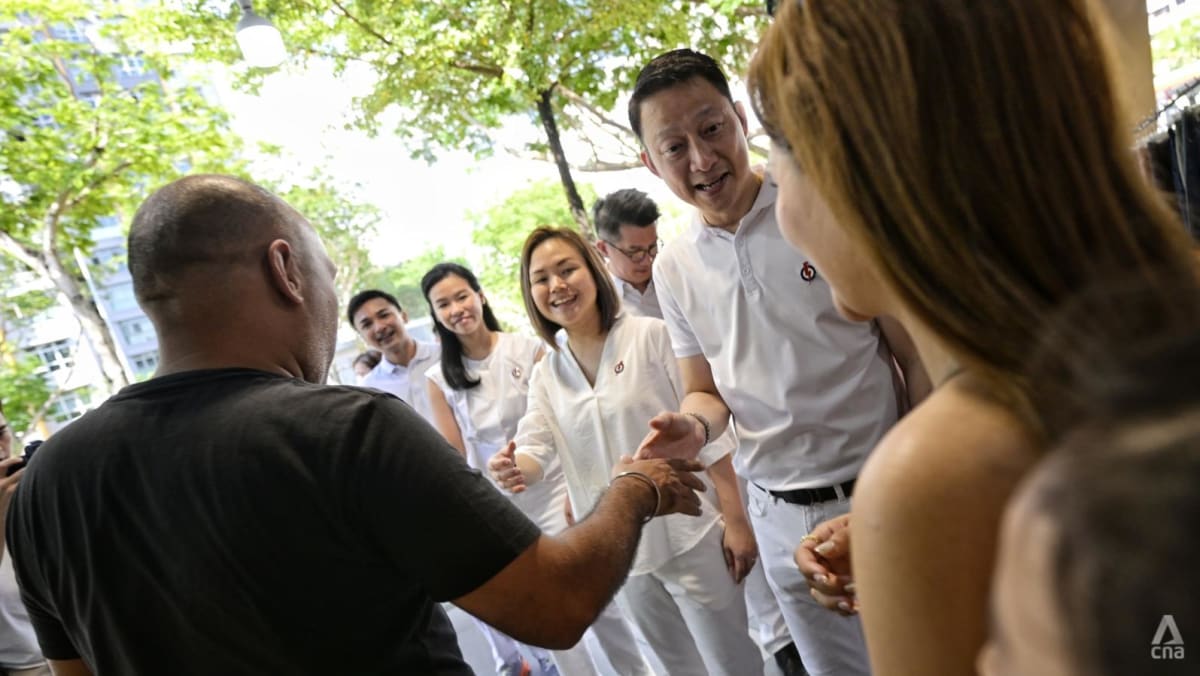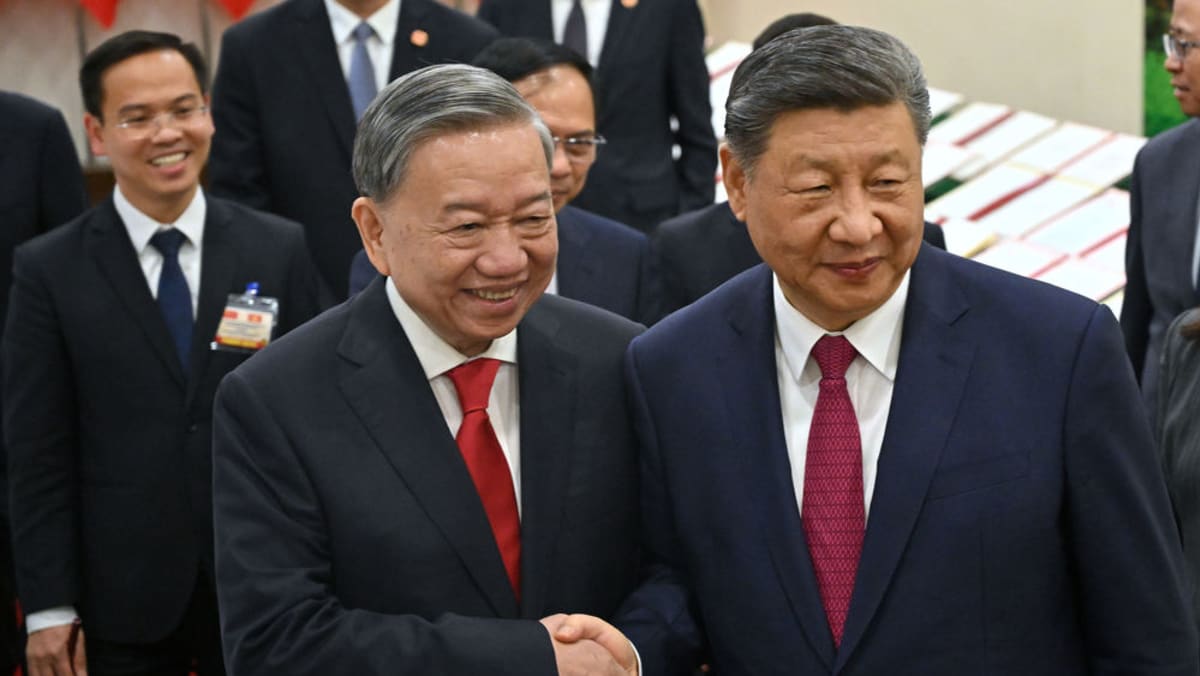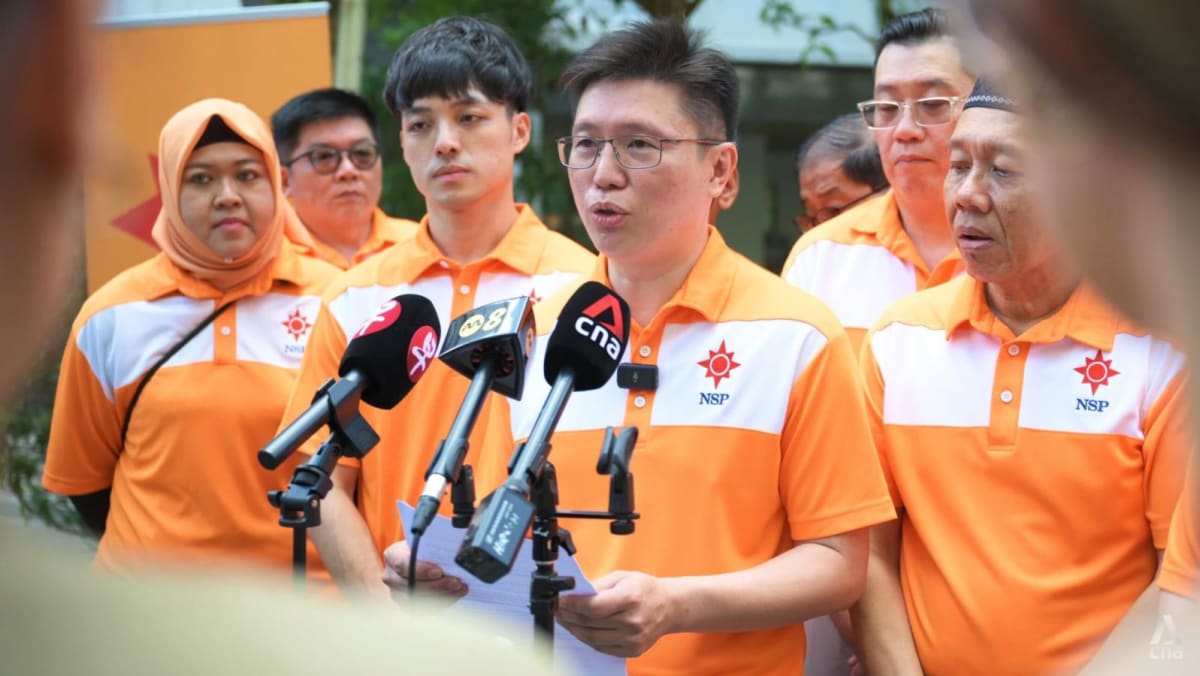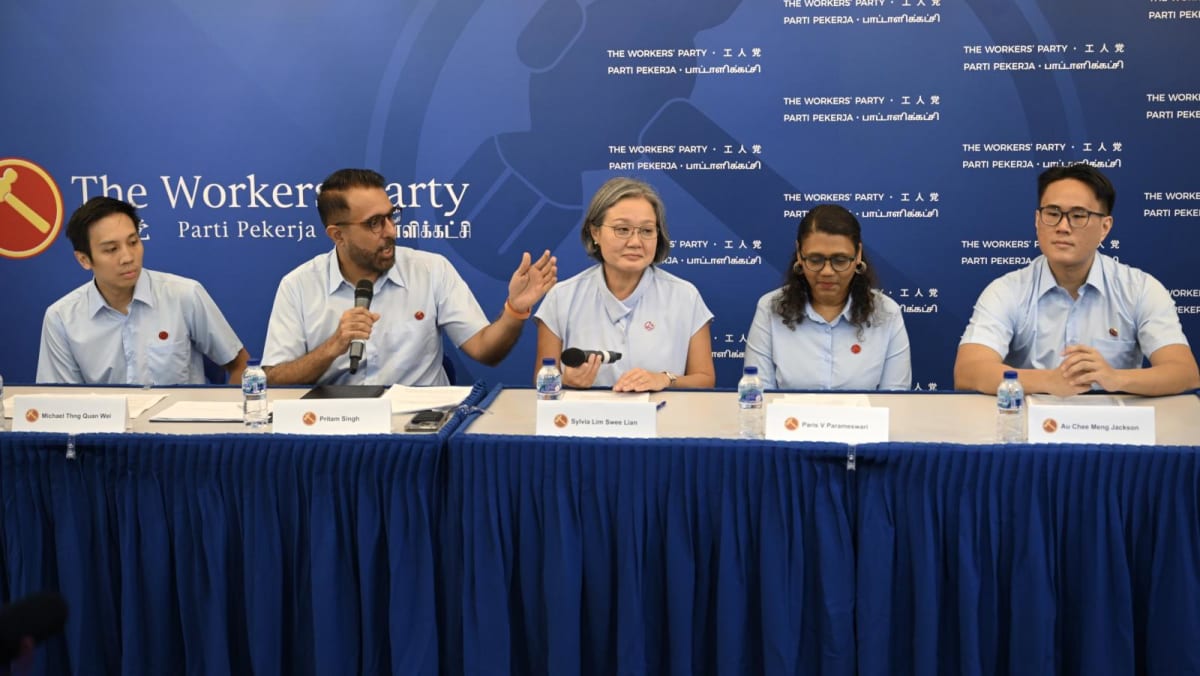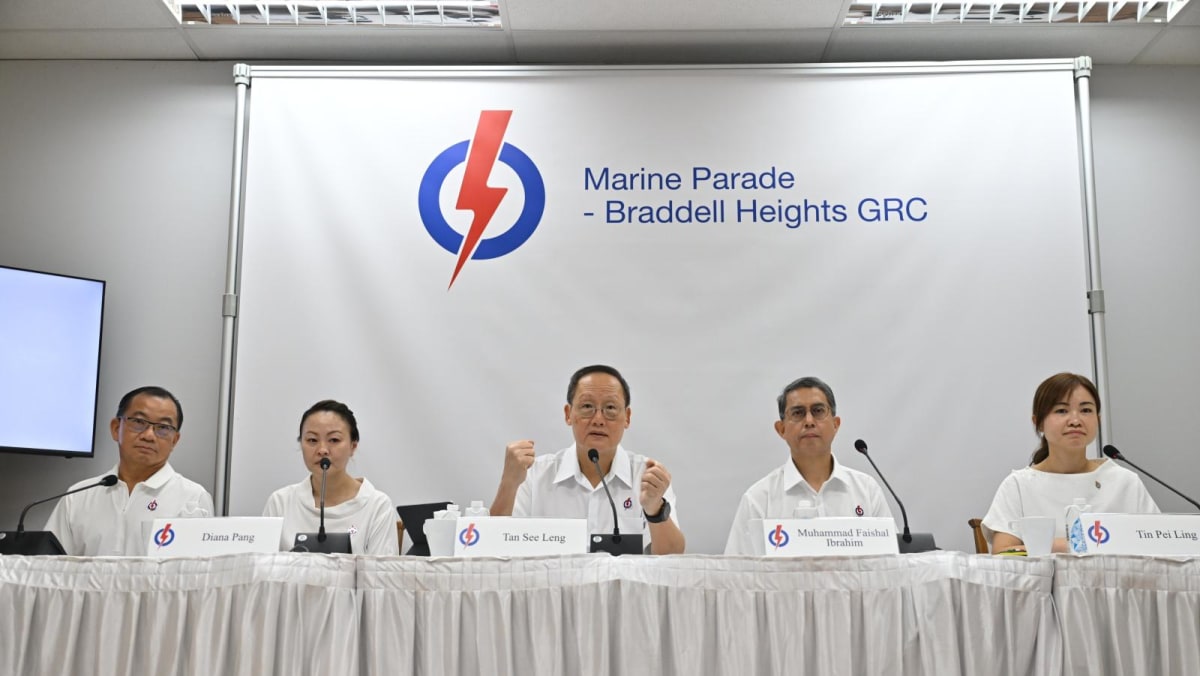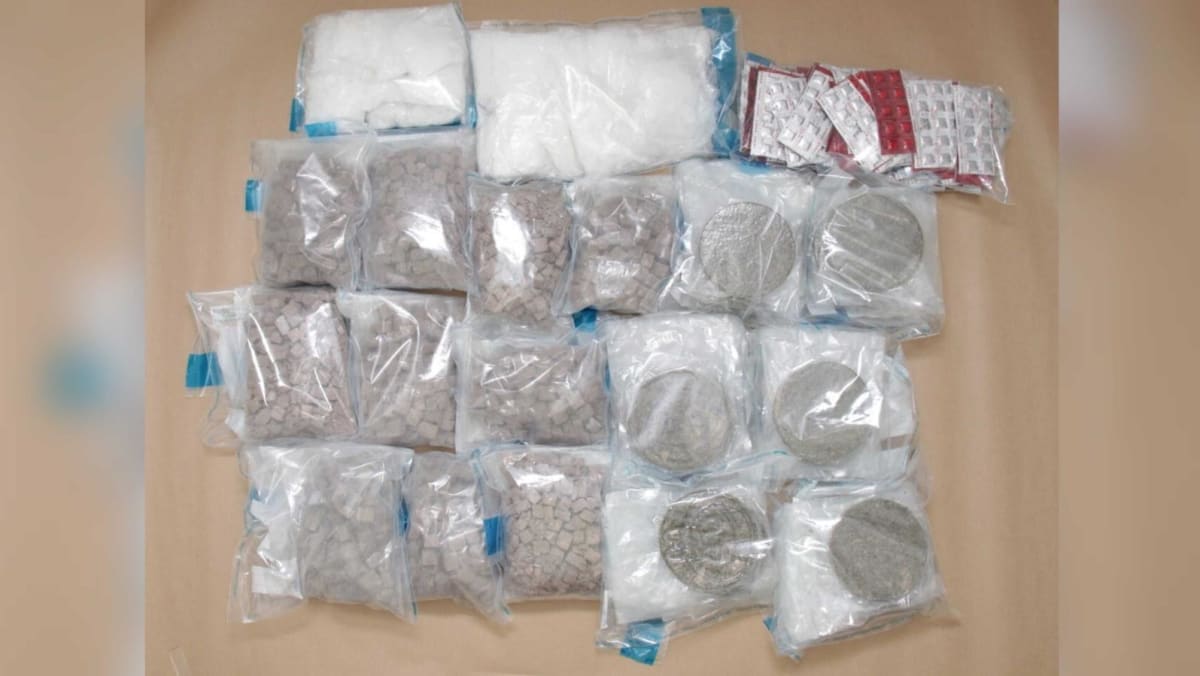SINGAPORE: The Singapore Democratic Party (SDP) launched its manifesto on Sunday (Apr 20), unveiling policies around cost of living, healthcare, housing, education and immigration.
In launching its slogan “Thrive, Not Just Survive” on Saturday, the party called for Goods and Services Tax (GST) to be scrapped for everyday essentials and for medical costs to be lowered, among other proposals.
Its manifesto, launched on Sunday, is split into six sections: economy, healthcare, housing, education, immigration and climate change.
One of its proposals is for the creation of a “simple national health insurance system” that eliminates the “complexities” of MediSave, MediShield, and CareShield.
Party chairman Paul Tambyah launched the manifesto on Sunday, alongside vice chairman Bryan Lim, and Marsiling-Yew Tee Group Representation Constituency (GRC) candidates Jufri Salim and Gigene Wong.
Speaking to reporters at Yew Tee Square, Professor Tambyah said: “The campaign manifesto is a promise, it’s a promise that we want you all to hold us accountable to.”
He added that the party has been “consistent” in what it has been saying for the last 20 to 30 years, and that it has updated its policies by focusing on what various government bodies could have done.
These are the key policies in SDP’s manifesto:
ECONOMY
The SDP reiterated its call to reduce GST and to eliminate it for essentials, such as food and medicines.
Prof Tambyah said the party has long called for a decrease in the GST, which currently stands at 9 per cent after an increase last year.
The GST was introduced in 1994 at 3 per cent. This increased to 4 per cent in 2003, 5 per cent in 2004, 7 per cent in 2007, 8 per cent in 2023 and 9 per cent last year.
“What we cannot believe is, in a time of global inflation, that the PAP (People’s Action Party) has chosen to raise the GST from 7 per cent to 9 per cent,” he said, adding that “at the very least” the it should be brought back down to 7 per cent.
He said that if elected, SDP Members of Parliament would ask why there was a S$6.4 billion (US$4.9 billion) surplus for the 2024 financial year – which was revised from the original estimate of S$778 million – and whether there could be a “more equitable way” of distributing revenue generation and reducing GST.
The reduction of GST was also a consistent theme in other opposition parties’ manifestos, Prof Tambyah said.
SDP also proposed reducing rents, saying that it is “well within the ability of the government” as it owns most of the land in Singapore.
It added that the government’s current approach of handouts and vouchers provides “temporary relief and a cushion at best”.
The SDP also asked the government to consider legislating a national minimum wage. It said that while the Progressive Wage Model is a “good start”, it does not “recognise the realities on the ground”.
“Perpetual training is often not possible for some professions, and not all workers are covered,” it added.
When workers lose their jobs, retrenchment insurance – paid out of an individual’s Central Provident Fund (CPF) account – should be introduced to provide them with support while they look for new jobs, said the party.
The government recently introduced a Jobseeker Support Scheme, but SDP said it was “extremely complex and limited in the support provided”.
“Our proposal goes one step further than the diminishing support by providing genuine relief while being sustainable as it does not tap … the reserves but rather builds up a pool from workers’ CPF contributions,” it said.
SDP also suggested divesting inefficient government-linked companies that it said are “slowing down” the growth of small- and medium-sized enterprises, while “weaning our economy of its addiction to multinational corporations”.
The opposition party said state investment firm Temasek “should be eliminated” and GIC’s operations and accounts made transparent.
On helping the elderly, SDP said it “recognises the value” of the Silver Support Scheme, but wants a “much broader scheme” that assists 80 per cent of low-income elderly with S$500 a month to supplement their CPF.
It said this could be funded “out of a very small portion” of the interest income on investment of the reserves.
SDP also said the CPF minimum sum scheme should be abolished, as it is “not only impractical but also immoral”, and that people should be able to choose if they want to keep their money in their accounts to gather interest.
HEALTHCARE
The party proposed that maternal and paediatric services should be “largely free” and funded by the government from taxes. This would reduce the cost of having and bringing up children and “potentially address” the problem of falling birth rates, it added.
Prof Tambyah, who is a senior consultant in the infectious diseases division at the National University Hospital, said the party sees maternal and paediatric care as an investment in the future of the country.
Primary healthcare services for chronic illnesses should also be paid through a “risk pooling system”, so that the costs of running these systems are shared by all in the community, said SDP.
The party added that the running costs of hospitals must be paid from taxes, and said the creation of healthcare clusters – the National Healthcare Group, the National University Health System, and Singhealth – has resulted in “significant” wastage and duplication, with multiple CEOs and administrators.
It said this system “needs to be abandoned” and called for Singapore to return to a “single unified public healthcare sector”.
